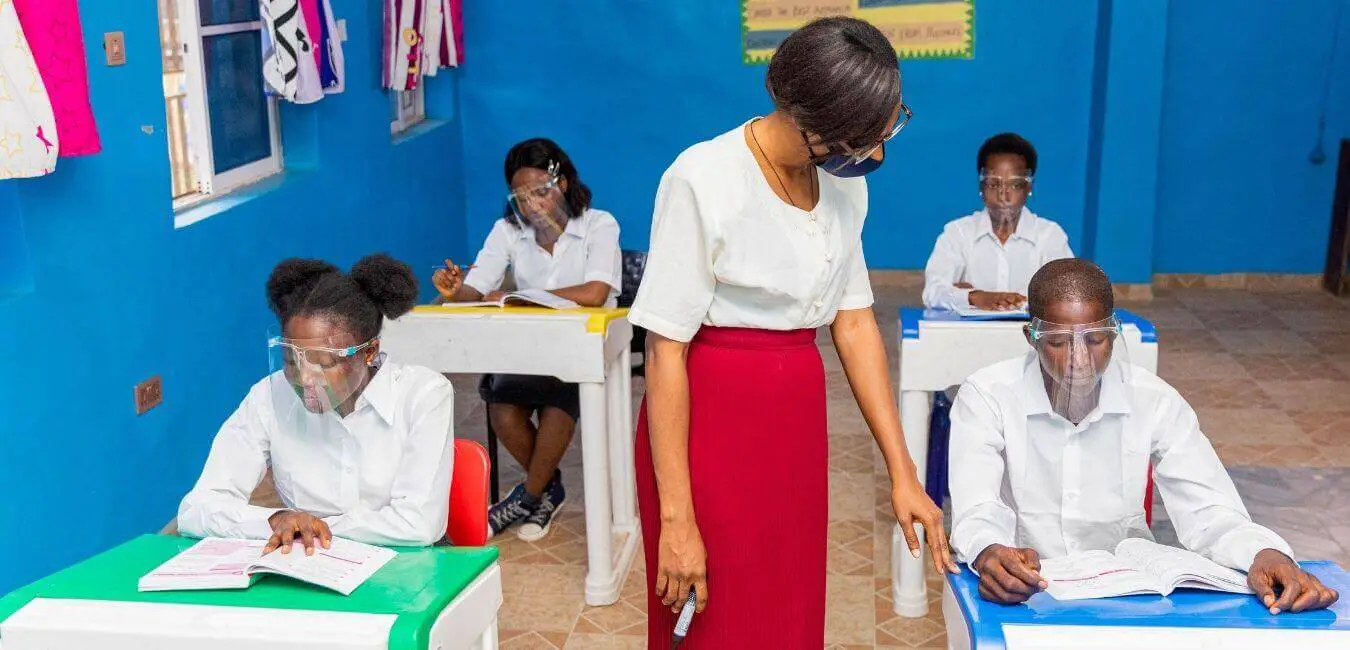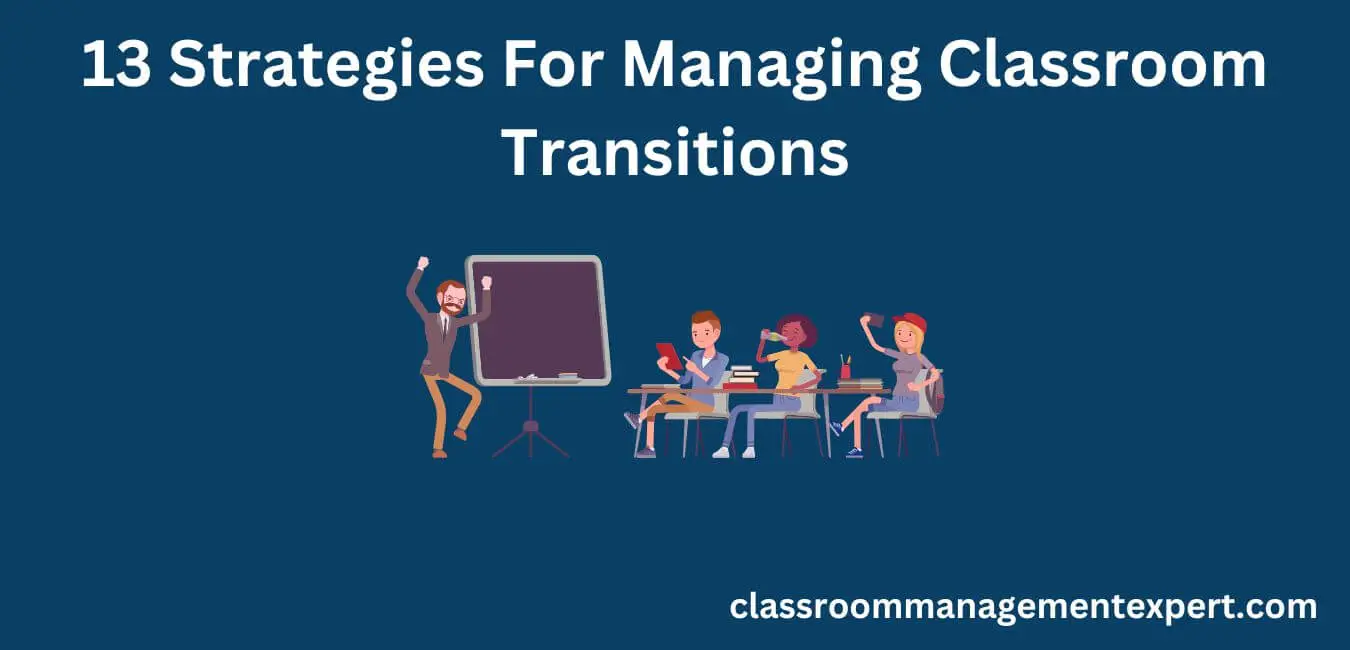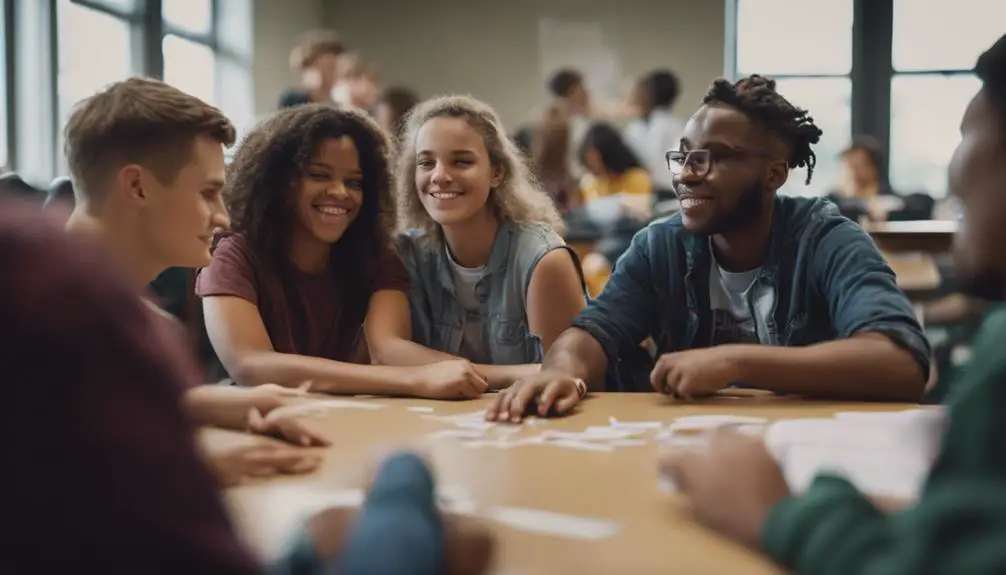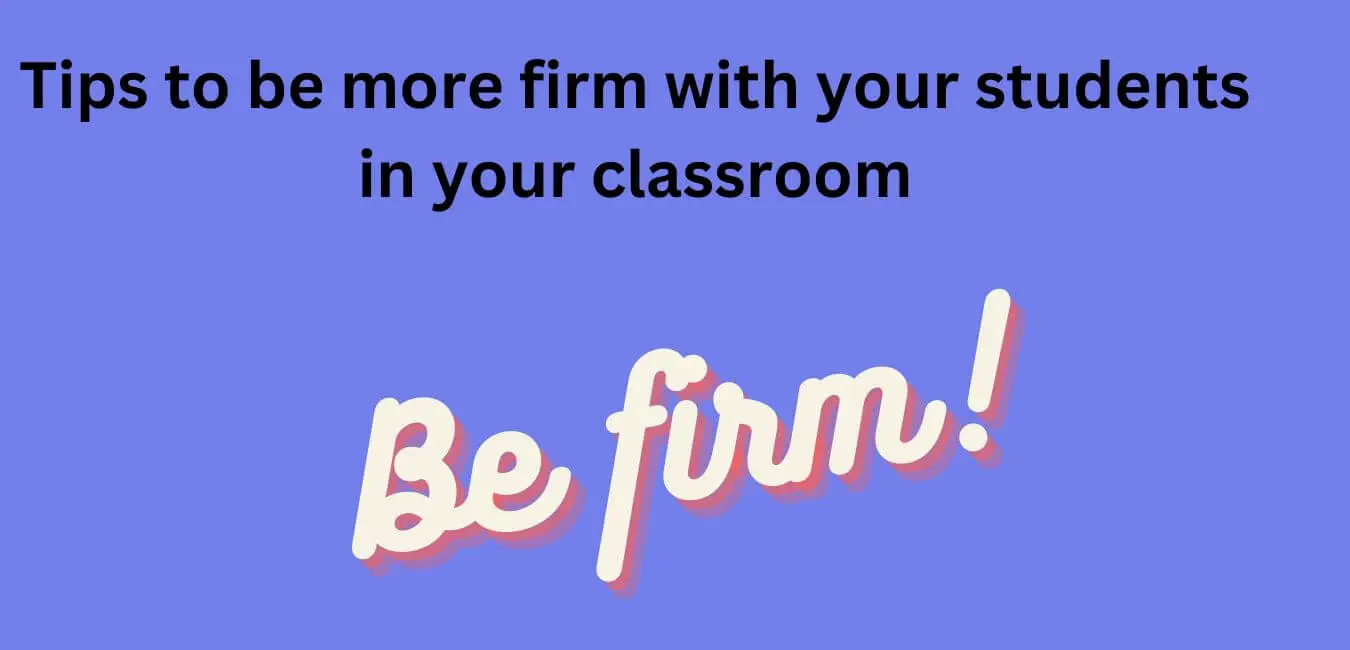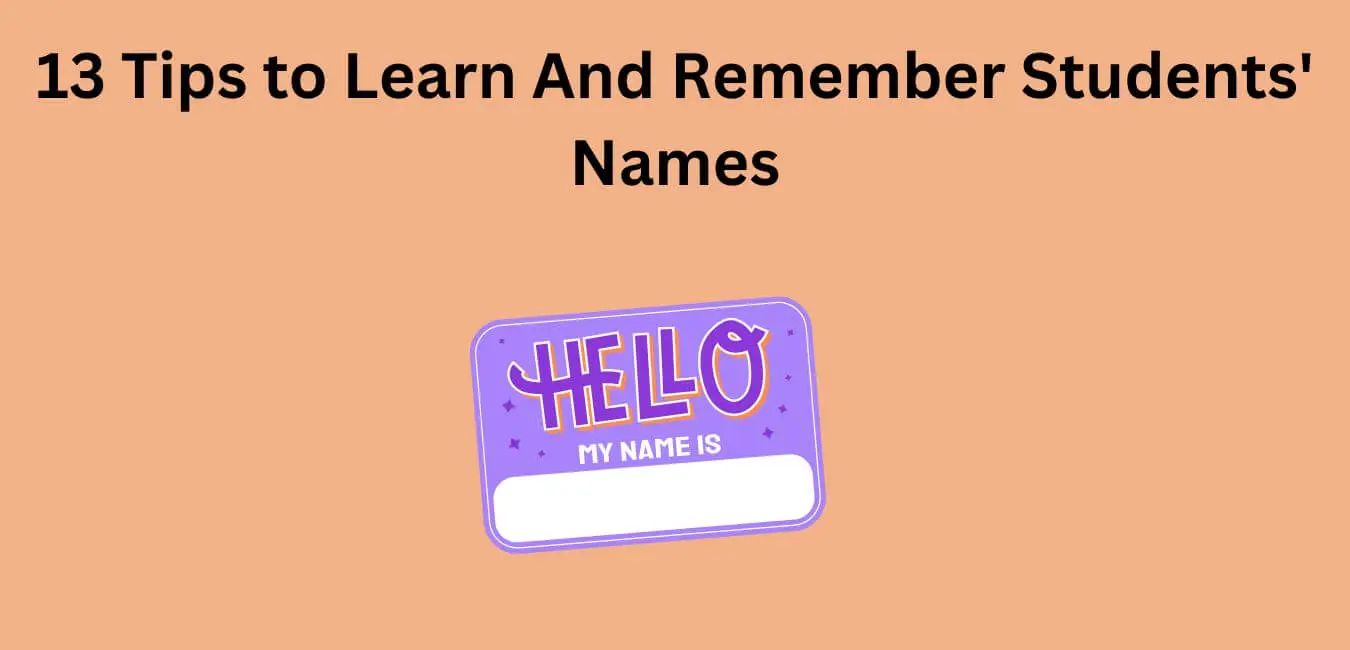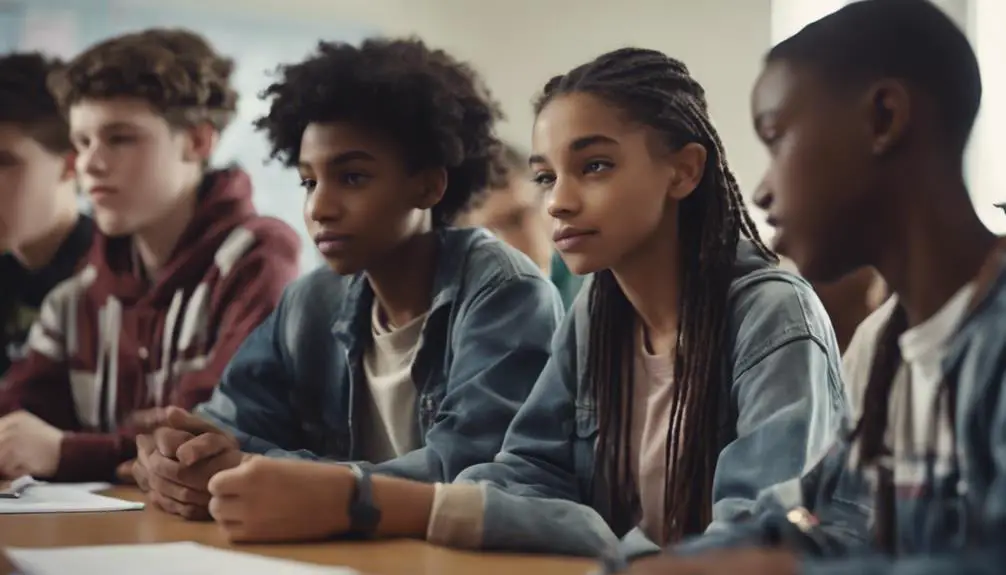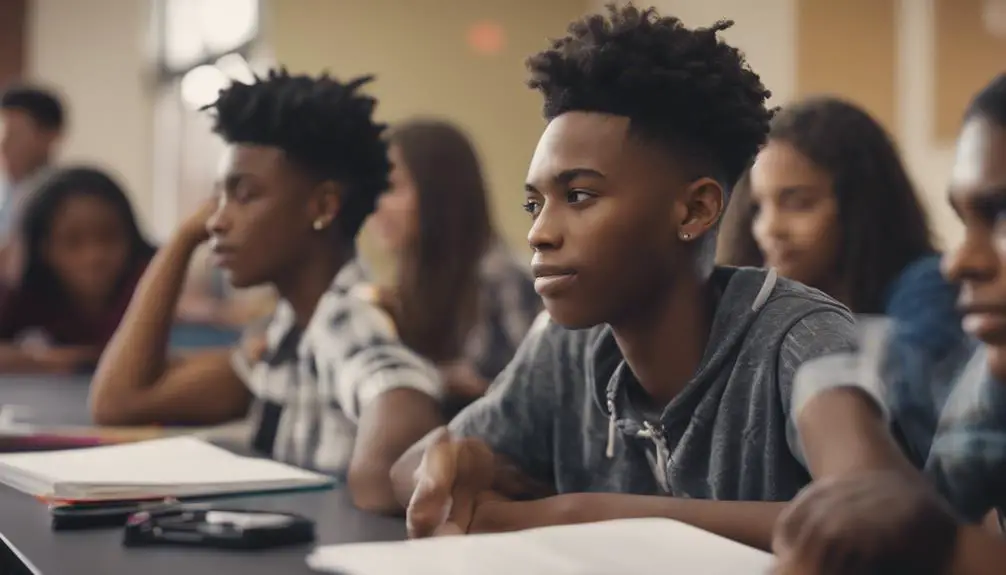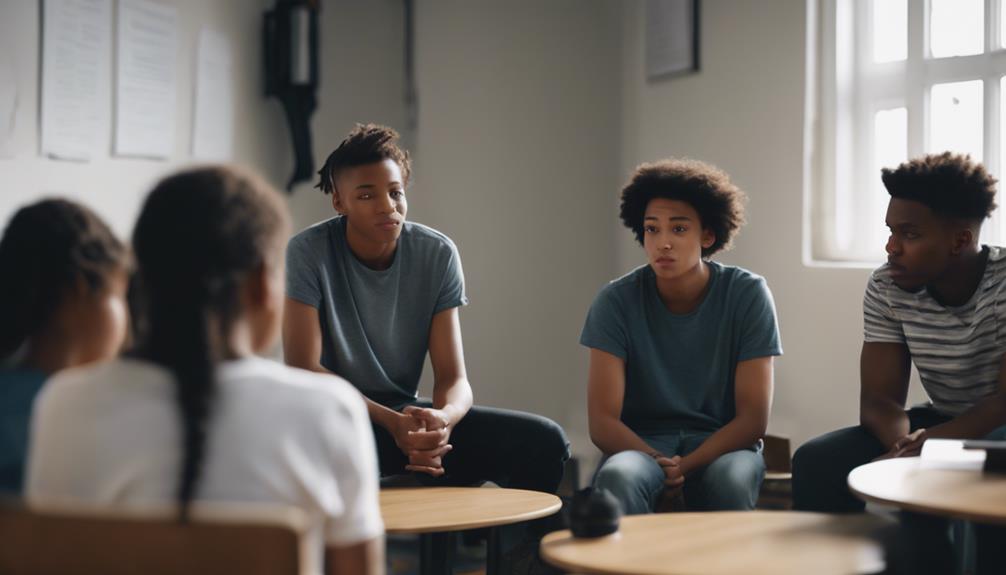“As a teacher, you’ll be in the trenches with students every day. You may notice that there are some phrases you should refrain from saying to your student.”
This blog post will teach or remind teachers how they can avoid triggering negative feelings and emotions in their students. Teachers need to know what not to say to their students because words have power, and it’s important for them not only to build up their relationships with their students but also create positive environments where learning can thrive. This post discusses common phrases teachers should refrain from using when speaking with or disciplining their students, so they don’t come off as insensitive or mean-spirited. It covers why it’s important for teachers not to use these phrases, and it provides an alternative phrase that teachers should use instead.
Why Is Teacher-Student Relationship Important?
A teacher and student relationship are important in the classroom because it creates a foundation for good learning. A successful, healthy relationship will bring about better classroom management, increased academic success, and positive emotions to the student-teacher connection.
Below are ten reasons why an effective, healthy teacher-student relationship is important:
1. Teachers often say that a student who has a strong relationship with their teachers does better in class. They understand the material and work more efficiently.
2. Having a positive, open relationship between teacher and student allows students to discuss problems they might be having outside of school. Sometimes social issues can affect academic performance and teachers can help direct students to specific resources where they can get help.
3. Teachers can praise students more often when they have a strong relationship because there is no fear of being reprimanded for doing so. Students are also more likely to work harder in order to gain praise from teachers whom they trust and respect.
4. Teachers are less likely to be lenient with their own children, but since the student-teacher relationship is open and honest, students can push boundaries safely.
5. Students are less stressed because they don’t have to worry about receiving a poor grade from a teacher who dislikes them or being reprimanded for talking out of turn. They feel confident in the classroom and have a sense of safety when approaching their teachers with questions or concerns.
6. Without a healthy relationship between teachers and students, the classroom becomes an uncomfortable place where all the students are constantly on edge in fear of being corrected or told off by their teacher for any reason.
7. Teachers are able to provide individualized attention to each student when they have strong relationships with them because they don’t need to worry about “saving face” when they provide feedback or create challenging assignments for their students.
8. When a student knows they can confide in their teacher, they are more likely to come to them with any social problems that might be occurring, like bullying or drama within the school community. They feel comfortable approaching teachers and asking for advice.
9. Without a teacher-student relationship, students might not utilize their teachers as resources or available assistants for schoolwork. It becomes difficult for the student to ask questions and seek help, causing them to fall behind in class and feel more isolated from their peers.
10. Teacher-student relationships are important because they create a sense of belonging within the classroom. Students feel comfortable, secure, and supported.
Why Should You Be Mindful of What You Say to Your Students?
If you are a teacher, it is important for you to realize the ramifications of what you say to your students. Your words can have lasting effects on your students, and there may be times when they will remember your words even after years have passed.
Since more than one-quarter of teachers leave their profession within five years, it’s crucial that teachers are careful about what they say to their students.
Even if you do not think that your words will affect your students or that you won’t be teaching them for very long, it’s crucial that you consider the possible effects of your words.
Here are 11 reasons why teachers must be reasonable with what they say to their students:
1. Inappropriate words can affect a student’s self-esteem.
2. Inappropriate words may cause friction with parents or guardians.
3. Students can use critical words in situations that they are not meant for.
4. Words that teachers say to students could be used in court cases against them later.
5. Generalizing comments about students based on their gender, race, sexual orientation, or physical appearance is unacceptable.
6. Teachers should be careful about the words they use because it could affect their job security.
7. Some words that teachers say to students could cause tensions between students and staff members.
8. Words that hurt students might lead to issues with other students and school administrators.
9. Words that hurt students could fuel tensions between groups of students in the student body.
10. Students could make up stories based on their words, and it can affect their relationships with others.
11. Negative comments can lead to dramatic consequences for students, such as dropping out of school or even suicide.
If you are a teacher, be mindful of what you say to your students.
What Are Some Things You Should Not Say to Your Students?
What are some things teachers should never say to their students? Teachers should be supportive in every way possible in order to make the best environment for learning. Sometimes, however, even when we mean well, our words can come out wrong and hurtful. Here is a list of 20 things teachers must not say to their students:
1.) “You will never make it through this.”
2.) “That’s not the answer I was looking for.”
3.) “You obviously didn’t read the lesson.”
4.) “I don’t care what you think, just do your work.”
5.) “This is easy. Why can’t you get it?”
6.) “If you don’t like it, go somewhere else.”
7.) “Why didn’t you do what I asked?”
8.) “You’re lazy!”
9.) “I don’t want to hear any excuses.”
10.) “What? You haven’t finished yet?”
11.) “Do I need to do this for you?”
12.) “I believe you can do better.”
13.) “Are you even trying to get this right?”
14) “You’re just not good at math!”
15) “If I have to explain it again, you’re getting a zero.”
16.) “Do you think that’s funny?”
17.) “It’s too late to change it now.”
18.) “Is that the best you can do?”
19.) “I don’t think you’re cut out for this.”
20.) “Don’t worry, I’ve seen worse!”
What Are Some Things You Can Say To Your Students?
Teachers can say many things to their students. For example, teachers may say “Do your best!” or “I will not tolerate that behavior.” They can also tell their students to get out of class (“What are you doing in my classroom?”) or to get extra help for failing work.
Here is a list of 20 things teachers may say to their students:
1. “You can do better than this.”
2. “I will not tolerate talking in my class.”
3. “Are you kidding me?! You got that wrong!”
4. “What are you doing in my classroom?”
5. “Be quiet and get to work.”
6. “Do your best!”
7. “I want you to take it one step at a time.”
8. “You’re really close, just keep trying!”
9. “That’s the right answer, great job.”
10. “I will not tolerate that behavior.”
11. “Go see Mr. Teacher Man if you have a problem.”
12. “I will help you after class, but I can’t during it.”
13. “Go get extra help from Mrs. Teacher Lady if you need it!”
14. “The answer is…(2x+3y=5).”
15. “How did you arrive at that answer?”
16. “What’s your approach to this problem?”
17. “What did you get for number 4?”
18. “This is really important, so pay attention.”
19. “If you don’t have your homework, see me after class.”
20. “You’re doing great! Keep it up!”
Final Thoughts
Do you want to know what teachers should never say in the classroom? If so, check out this list of 20 things that may be better left unsaid. You’ll find a wide range of different phrases here, from “you’re lazy!” and “what did you get for number 4?” to more complex sentences like “I don’t think you’re cut out for this.” The thing they all have in common is that if your teacher says them to you or about you, it can lead to serious consequences such as dropping out of school or even suicide. Teachers must take into consideration how their words could affect students emotionally and socially when interacting with them at work. It’s important these days for teachers not only to educate but also to support students who are struggling. Teachers are not only there to teach but also to be positive role models for their students. They must care about what they think and how they feel in order to make sure everyone has a safe, fun, and productive time during class. Find more articles here.

